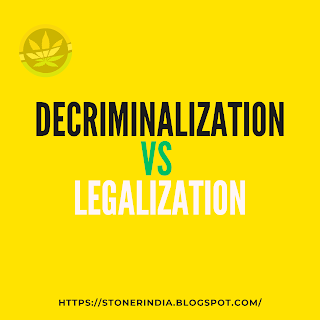Decriminalization and legalization are two distinct approaches to drug policy, with contrasting implications. While both involve a relaxation of laws surrounding drug use, possession, and distribution, there are significant differences between the two.
Decriminalization, often referred to as decriminalization, typically means the removal of criminal penalties for the possession of small amounts of drugs for personal use. Individuals caught with drugs may still face civil penalties, such as fines or mandatory drug education classes, but they would not face criminal charges, incarceration, or a criminal record. For instance, in the case of cannabis, decriminalization usually implies that individuals caught with small amounts of marijuana would not be arrested, prosecuted, or jailed for possession. However, the sale, cultivation, and distribution of cannabis would still be illegal under a decriminalization model.
On the other hand, legalization, also known as legalization, involves the complete removal of legal restrictions on the possession, sale, and use of a drug. This means that individuals would be allowed to possess and consume marijuana without fear of criminal prosecution. Moreover, the sale and cultivation of marijuana would be regulated and taxed by the government, similar to alcohol and tobacco. Legalization typically allows for the creation of a legal market for the drug, with licensed growers, processors, and retailers
While decriminalization and legalization both represent a significant shift away from the criminalization of drug use, possession, and distribution, they have different goals and outcomes. Decriminalization aims to reduce the harm caused by criminalization, such as the social and economic costs of incarceration and the stigmatization of drug users. It is generally considered a more moderate approach to drug policy, aimed at reducing the harm associated with drug use without endorsing or promoting it.
Legalization, in contrast, seeks to establish a legal and regulated market for drugs, with the goal of reducing the harms associated with black market drug production and distribution. It is regarded as a more radical approach, aimed at fundamentally changing the way society views and treats drug use. Advocates of legalization argue that the regulation and taxation of drugs can generate revenue for governments, reduce drug-related violence and crime, and improve public health outcomes by ensuring that drugs are produced and distributed safely.
In conclusion, decriminalization and legalization are two distinct approaches to drug policy, each with their advantages and disadvantages. While both involve the relaxation of laws surrounding drug use, possession, and distribution, they have different goals and outcomes. Decriminalization seeks to reduce the harm associated with criminalization, while legalization seeks to establish a legal and regulated market for drugs. The choice between these two approaches will depend on a range of factors, including social, economic, and political considerations, as well as public opinion and scientific evidence.
Share this article by stonerindia on legalization vs decriminalization if you found this article useful. Comment your thoughts on "Should India need to legalize?"







.jpg)




0 Comments
Hi write down your query.